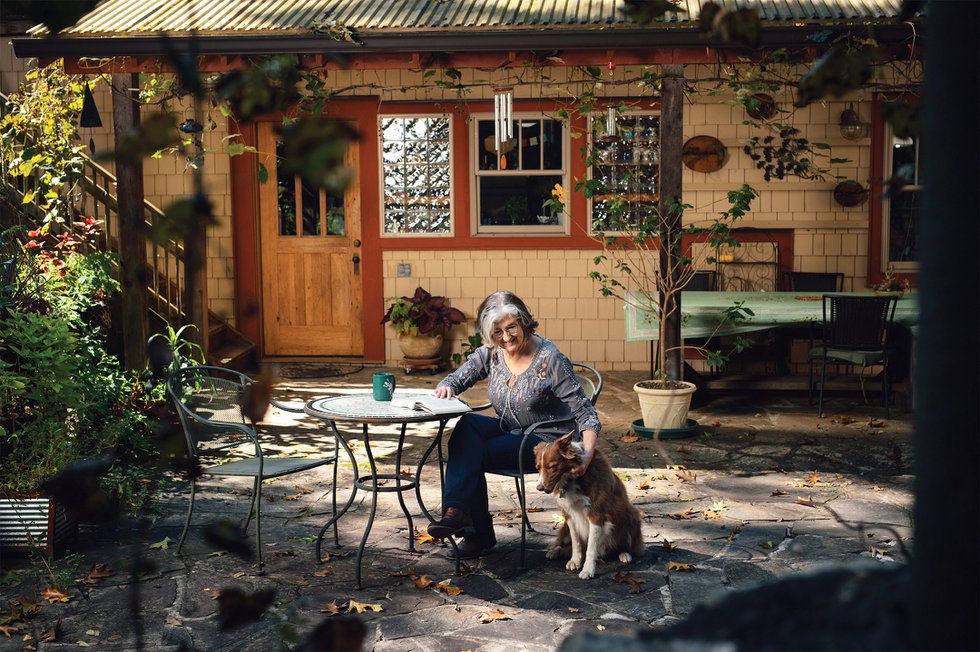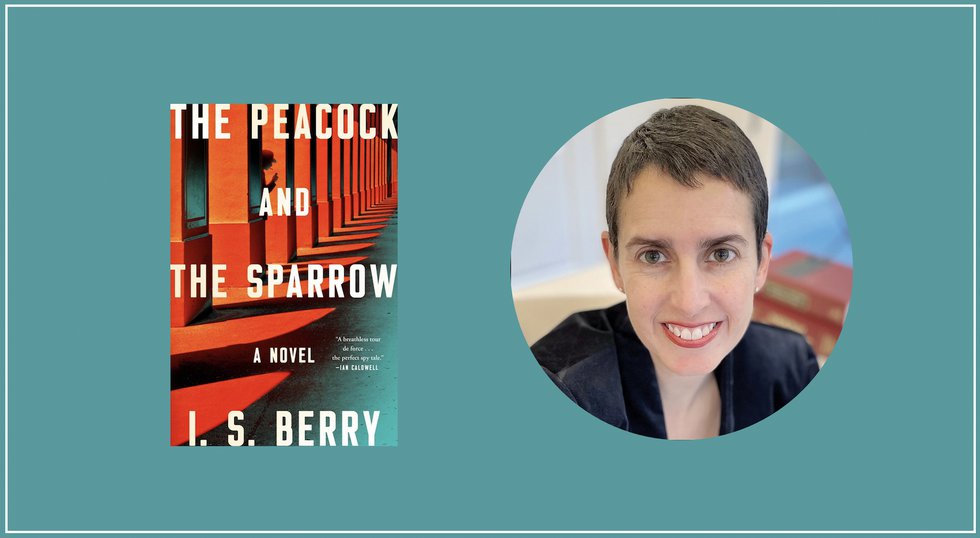How Barbara Kingsolver stumbled on her Appalachian heritage.


Among her 17 bestselling books, Barbara Kingsolver’s ninth—The Poisonwood Bible—became both a Pulitzer Prize nominee and Oprah Book Club pick. So it was no surprise when her latest set bookstores buzzing. “It just flew off the shelves,” says James, a manager at one Richmond Barnes & Noble, of Demon Copperhead, Kingsolver’s modern retelling of Charles Dickens’ David Copperfield. “We couldn’t restock it fast enough.”
Winner of the 2023 Pulitzer Prize, Women’s Prize for Fiction, and named one of the “10 Best Books of 2022” by The New York Times, Demon Copperhead was inspired by Kinsolver’s visit to Bleak House—where Dickens wrote Copperfield—now an inn. With the owners’ approval, Kingsolver sat at Dickens’ desk to ponder her next project. She found herself communing with the author’s creative spirit.
“I just heard him talking to me saying, ‘You have to do this.’ And the tip Dickens gave me was ‘you let the child tell the story.’” With that, her Copperfield counterpart, the Appalachian boy Demon Copperhead was born. “I started hearing his voice,” she says, “and I started writing this novel at that desk right there, and I brought him home with me.”
Kingsolver set herself up for “a new challenge” with this book, as she does with each new project. “In this case, it was plotting my novel directly onto the trunk and branches of a tree written by Dickens, then translating it into modern situations, characters, language.” It was a daring approach, loaded with risk. But that’s what sets Kingsolver’s books apart.

Finding Her Home
In recent decades, as millions were discovering her name, it turns out Kingsolver was doing the same. “I was used to being the only Kingsolver in the phonebook,” she says of growing up in Kentucky, in a family she’d always believed was small. But Kingsolvers have a way of turning up in unexpected places, as she discovered after living in Tucson for 25 years.
She was a writer at the University of Arizona, where she’d earned a master’s degree in ecology and evolutionary biology, when she won a two-week fellowship as a visiting writer at Emory & Henry College, near Abingdon. Arriving in Virginia, Kingsolver says, “I immediately felt home.”
She’d never set foot in the Commonwealth before, but the connection was undeniably palpable. But why? The mystery was solved at a library talk during her stay. “A dozen elderly ladies, who’d occupied the whole front row, marched up to me and exclaimed, ‘We’re all Kingsolvers! Used to be you couldn’t walk around here without stepping on one.”
A quick call to her father confirmed that she’d landed on ancestral turf. “My grandfather left for Kentucky and started his branch of the family. I never even knew we’d come from Virginia,” Kingsolver explains. Ironically, this life-altering discovery almost didn’t happen.
“I felt like fate had brought me back here. The funny thing is, at the time I was offered the Lila Wallace Fellowship [at Emory & Henry], I almost turned it down.” A single mom, she wasn’t sure she could afford childcare for the time she’d be away in Virginia. “But, you know?” she laughs, “So much about life hinges on those random decisions.”
Artistic Ambitions
During her stay, when she met Steven Hopp—a biology professor and local musician—the connection to Virginia deepened. A year later, the two married. “So here I am, in a 120-year-old farmhouse,” she says nearly two decades later, “living on my ancestral land in Appalachia.”
That she became a writer at all surprises no one more than Kingsolver herself. “I didn’t grow up among people who had artistic ambitions. I thought science would be practical,” she laughs, of her college and graduate school studies. “Becoming a writer just kind of happened to me in spite of myself—I am almost the only writer I know who did not study writing.”
Her intimate knowledge of science and biology allows her to “see the world in a different way,” she notes. As critic Michiko Kakutani wrote, in novels like The Lacuna (2009) or The Poisonwood Bible, she includes “a fearsome world of nature whose perils are magnified by political and racial tensions.” And nothing inspires her more than the view through her office window. “Here we are surrounded by forest, by a wonderful vegetable garden, pastures, and good neighbors. I can’t imagine living anywhere else. This is the best place on earth.”
More than Just Fiction

Whatever your interest, there’s probably a Kingsolver book that speaks to it. An educator, foodie, former restaurateur, nature-lover, and world traveler, she’s covered these topics and more. She detailed her family’s year of eating only locally-grown in Animal, Vegetable, Miracle: A Year of Food Life, which was named one of Time magazine’s Top 10 Nonfiction Books of 2007. Intimate and honest, the book is a love letter to Virginia that “practically vibrates with seductive organic intensity” fellow author Lev Grossman observes.
A few years later, Kingsolver and her husband opened Harvest Table, a restaurant in Meadowview, where she expressed her deep reverence for local food. “The atmosphere was infused with magic,” author Kathleen Jacobs says, recalling a dinner there. “Kingsolver took the time to chat a bit with everyone who approached her about her work.” After a popular run, the couple closed the restaurant a few years ago, ready for a new chapter.
A Virginia Landscape Love Affair
Though she’s lived around the world, Kingsolver is home. “I’m a mountain girl, you know. I live in Appalachian Virginia, and I love the beauty and rich biodiversity.” After years in arid Arizona, she still marvels at the rainfall: “You can throw seeds at the ground, and they will grow to the sky,” she muses.
She bristles at the Appalachian stereotype of “a straw hat, fishing pole, and moonshine jug.” The people here, Kingsolver says, share a rich history that goes beyond that. “When you meet somebody here, you sit down and you ask, ‘Who are your people?’ And you talk until you’ve found some common relative or some common history.”
She is charmed by local customs, like giving tomato plants on Mother’s Day or frying spring ramps with potatoes in bacon fat. Her neighbors talk of planting corn or tobacco plants to get the most sun. On her own family farm, where tobacco once grew, “nearly every corner has a name or a story attached to it,” she notes. To prove the point, she traces the 75-year-old apple orchard, which still bears fruit, planted by Stanford Webb, the property’s original owner.
Like many small towns, where the close ties mean you know every student at the high school’s graduation, the sense of place is stronger. “We really are people bound by community,” Kingsolver says. “We help each other out; there is great kindness in this culture.”

This article originally appeared in the June 2023 issue.








